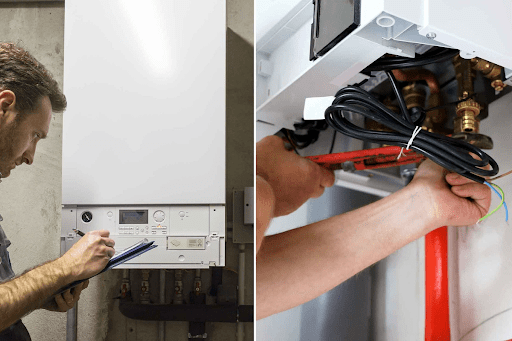Incorporating smart technology into boiler controls is revolutionizing how we manage temperature, energy consumption, and overall efficiency in the ever-evolving landscape of home and industrial heating. Smart technology, driven by the Internet of Things (IoT), offers unprecedented control, automation, and optimization, ushering in a new era of comfort, convenience, and sustainability. In this comprehensive guide, we’ll delve into the transformative potential of smart technology integration and its implications for the future of gas boiler controls.
Understanding Smart Technology Integration
Smart technology encompasses a range of innovative solutions designed to enhance the functionality and performance of traditional heating systems. These solutions leverage connectivity, data analytics, and automation to optimize energy usage, improve comfort levels, and streamline maintenance processes. In the context of gas boiler controls, smart technology integration incorporates sensors, actuators, and intelligent algorithms to achieve greater precision, responsiveness, and adaptability.
Key Features and Benefits
Remote Monitoring and Control: One of the primary advantages of smart technology integration is monitoring and controlling gas boiler systems remotely. Through intuitive mobile apps or web-based platforms, users can adjust temperature settings, schedule heating cycles, and receive real-time status updates from anywhere with an internet connection. This level of accessibility empowers homeowners, facility managers, and maintenance personnel to manage heating systems efficiently, whether at home, in the office, or on the go.
Predictive Maintenance: Smart gas boiler controls utilize advanced analytics and predictive algorithms to anticipate maintenance needs and identify potential issues before they escalate. By continuously monitoring performance metrics such as temperature, pressure, and fuel consumption, these systems can detect anomalies, diagnose faults, and recommend corrective actions proactively. This predictive approach minimizes downtime and repair costs and prolongs the lifespan of equipment, ensuring reliable operation for years to come.
Energy Optimization: With energy efficiency becoming a top priority for environmental and economic reasons, smart gas boiler controls are crucial in optimizing energy usage without compromising comfort. By analyzing occupancy patterns, weather forecasts, and user preferences, these systems can dynamically adjust heating schedules, modulate output levels, and implement energy-saving strategies such as temperature setbacks and load shedding. The result is a more sustainable and cost-effective heating solution that reduces utility bills and carbon emissions.
Integration with Smart Home Ecosystems: As smart homes continue to gain popularity, interoperability with other connected devices and platforms has become increasingly important. Smart gas boiler controls can seamlessly integrate with smart thermostats, home automation systems, and voice assistants like Amazon Alexa and Google Assistant, allowing centralized control and enhanced synergy across the entire home ecosystem. This integration enables features such as voice commands, geofencing, and synchronized operation with other smart devices, further enhancing convenience and user experience.
Future Trends and Innovations
Looking ahead, the future of gas boiler controls lies in continued innovation and integration with emerging technologies. Some exciting trends to watch out for include:
Artificial Intelligence (AI) and Machine Learning: AI-driven algorithms can further enhance the intelligence and adaptability of smart gas boiler controls. By analyzing vast amounts of data and learning from user behavior, AI algorithms can optimize heating strategies in real time, anticipate evolving patterns, and continuously improve system performance.
Edge Computing and Edge AI: As the demand for real-time responsiveness grows, edge computing technologies are poised to play a critical role in enabling distributed intelligence at the device level. Edge AI algorithms running directly on gas boiler controllers can deliver faster decision-making, reduce latency, and enhance resilience against network disruptions, ensuring uninterrupted operation and superior user experience.
Blockchain-based Smart Contracts: Blockchain technology offers opportunities to enhance security, transparency, and trust in the management of heating systems. By leveraging blockchain-based smart contracts, users can establish immutable agreements for energy exchange, incentivize energy conservation behaviors, and facilitate peer-to-peer trading of excess heat or renewable energy generated on-site.
Closing Words
Integrating smart technology into gas boiler controls represents a paradigm shift in heating system management, offering unprecedented control, efficiency, and sustainability. Smart gas boiler controls empower users to optimize energy usage, minimize maintenance costs, and enjoy greater comfort and convenience by harnessing the power of connectivity, data analytics, and automation.
